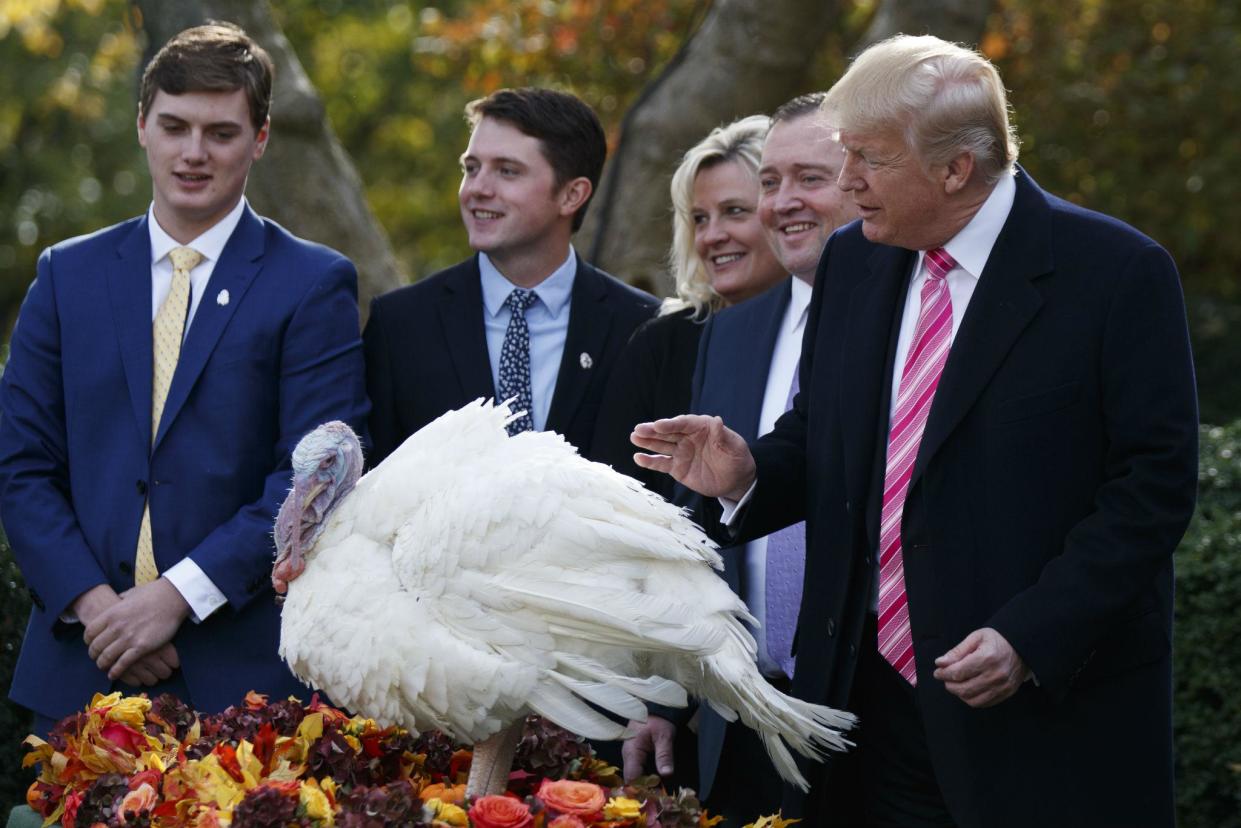Thanksgiving: Why many Americans don't celebrate it

Many would not think of Thanksgiving as a source of controversy.
After all, the holiday usually just entails eating turkey - or maybe some other vegetarian main course option - with your closest friends and family.
But the holiday actually has a contentious history that goes far beyond when the first feast was held, or was said to be held, in 1621.
Thanksgiving is considered by some to be a ‘national day of mourning’
Like Columbus Day, the holiday is viewed by many to be a celebration of the conquest of Native Americans by colonists.
Several Native Americans see Thanksgiving as an embellished narrative of “Pilgrims and Natives looking past their differences” to break bread.
Professor Robert Jensen of the University of Texas at Austin said: “One indication of moral progress in the United States would be the replacement of Thanksgiving Day and its self-indulgent family feasting with a National Day of Atonement accompanied by a self-reflective collective fasting.”
People disagree about when the first Thanksgiving happened
Most Americans think the three-day celebration between the Pilgrims and the the Wampanoag Indians in 1621 in Plymouth, Massachusetts was the first Thanksgiving. The Pilgrims and their Native American neighbours had signed a mutual protection treaty the spring before.
But from the Pilgrims’ point of view, the first Thanksgiving - meant to be a day set aside for prayer and worship - took place in July 1623. Governor William Bradford declared a day of Thanksgiving to give thanks for the rain that had ended a drought and saved their harvest.
In 1962, a Virginia state senator disputed President John F Kennedy’s assertion that Plymouth was the site of the First Thanksgiving.
“America’s First Thanksgiving was actually celebrated in Virginia in 1619,” the Virginian wrote the president, referring to a religious ceremony that English settlers held when they arrived in Berkeley Plantation near Richmond. “Please issue an appropriate correction.”
“You are quite right,” came the reply from Mr Kennedy’s special assistant, the historian Arthur Schlesinger Jr. “I can only plead unconquerable New England bias on the part of the White House staff.”
Not everyone liked the idea of a national Thanksgiving holiday
In 1789, President George Washington proclaimed a National Day of Thanksgiving, asking Americans to gather on the last Thursday of November to give thanks for the establishment of “a form of government for their safety and happiness.”
But some members of Congress objected, asserting that the authority to designate a day of thanksgiving belonged to individual state governors, not the president.
Others argued that Thanksgiving was a “religious matter”. Therefore, the government’s establishment of a national thanksgiving was forbidden by the First Amendment.
Mr Washington proclaimed a second day of Thanksgiving in 1795, and presidents John Adams, James Madison and others did the same in subsequent years. But many presidents, particularly Thomas Jefferson, still opposed doing this.
It was not until 1863 when a president, Abraham Lincoln, established the regular tradition of observing days of national thanksgiving.

 Yahoo News
Yahoo News 
